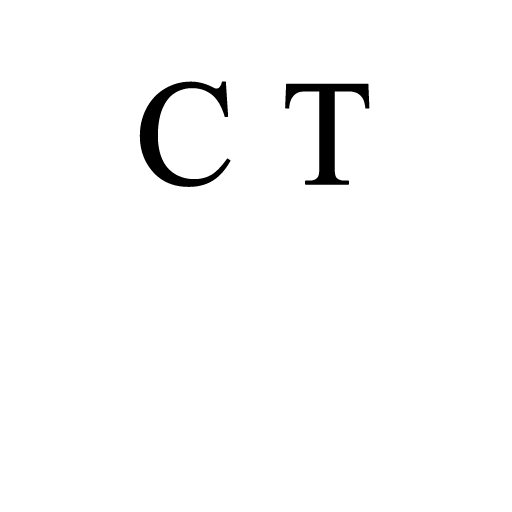Fox Business reports that Venezuela implements major economic changes – will they work?
Here is one of those headlines that ask a question, and the answer seems clearly a No, because the problem President Maduro is addressing is not that there is no inherent value backing the bolívar, but that the numbers on the price tags are too high.
One reform shouldn’t be too damaging:
Maduro said Sunday that beginning Sept. 1, the minimum wage will be hiked more than 3,000% to around $30, the widely used black market rate.
No thanks to Fox Business, we find that this $30 is for a full month of a worker’s services. If the black-market rate is in fact widely used, then all the government has done is align a fairly needless law with market reality, which means there are very few jobs that will become illegal. Best of all, as the government continues to inflate, the minimum wage will recede until no jobs at all are in violation of it (which was probably the case with the old, one-cent minimum wage). On the other hand, Euronews says the old minimum wage was in fact 50 cents (surely was, at some point in the past), and predicts that “That will likely increase unemployment and further fuel mass emigration that has overwhelmed South American countries.” Indeed, those who were working at less than the “widely used…black market rate” will now find they have no job at all and would be well-advised to get out of the country in favor of somewhere they are allowed to work.
But the big reform is just as nugatory. Effective on August 20, those 100,000 bolívares in your pocket will become 1 Bolívar Soberano (sovereign bolívar), a name that is gassier than John Brennan calling a Trump wisecrack about the Russians “nothing short of treason.” Laughably gassy, given that one purpose of the conversion is to convey stability and confidence. Wikipedia tells us that the old currency was formally the Bolívar Fuerte (strong bolívar), which only means that the Cosmic and Impenetrable Bolívar is a name that is still available.
(A central bank website has a post from March saying the conversion will take effect in June and only lop off three zeros. Happily, more — two more zeros — can be accomplished if one waits until a plan is maduro. Sorry.)
But still, changing the measuring stick doesn’t affect the things measured. Fox says:
Economists say the package of measures is likely to accelerate hyperinflation rather than address its core economic troubles, like oil production plunging to levels last seen in 1947.
No, changing the unit of measurement doesn’t change any of those things. The fall in oil production doesn’t owe to inflation, but to expropriation and subsidy. Maduro will allow gasoline to rise to the world price instead of gifting it to all comers; that is a good thing, as it reinstitutes the price system to encourage production and discourage consumption (also smuggling). This suggests that Maduro is more comfortable with someone other than himself setting the price of petrol than he is with someone other than himself setting the price of a month’s labor.
Will changing the name of the money “accelerate hyperinflation”? It may prepare national psychology for inflation, by removing the absurdity of the numbers on price tags for a while. (A package of chicken going from Bs.S.1 to Bs.S.2 is painful but graspable, whereas the package going from Bs.S. infinity to Bs.S. double-infinity mostly suggests that we are already through the looking glass.) Another psychological token is that the move is not being accompanied by any fundamental reforms that would suggest that the government wants to constrain its creation of money. Maduro, after all, is not constrained by anything, not even the Supreme Court, any more, nor the need to hold token elections.
One reform is interesting but not fundamental:
Maduro said he wants to peg wages, prices and pensions to the petro — a cryptocurrency announced in February but which has yet to start circulating. He said one petro would equal $60, with the goal of moving toward a single floating exchange rate in the future tied to the digital currency.
This is a nod to cryptocurrencies, although the successful ones, though having nothing of value backing them, have a techie story that suggests a serious limit on the number of them that will come into existence. The name and the $60 figure sounds as though it will be pegged to the world value of a barrel of oil, though—
- Maduro didn’t say that, and
- We couldn’t trust him if he did.
Other countries have alternative units of account, in the cases where the national money can’t be used as one. Perú had the Tributary Unit, in which you paid fines and such; if I recall, it used to always work out to US$100. For stuff with the potential for time to pass between purchase and delivery, there was yet another unit, the US dollar itself. In Panamá and Ecuador, the US dollar is all there is, though the former makes a feint toward national pride by minting its own coins for amounts under $1.
Monday’s announcement, apart from the felicitous end to giving away gasoline, may seem like rearranging deck chairs on the Titanic. There is no real reason this is not the best thing to do, if you are on the deck of the Titanic. On this South American sinking ship, however, the captain is flatly unconcerned about whether there are additional icebergs, and nothing about the current announcement suggests any change to that state of affairs.



